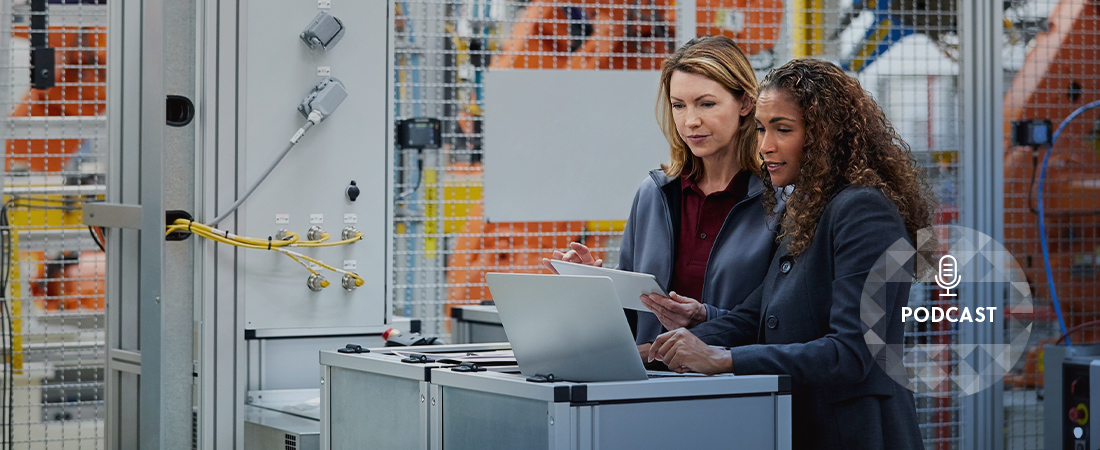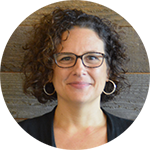From Service to STEM

Listen in as our experts discuss a wide range of current topics. Check out all of our podcasts.
Leadership, problem-solving, and technical expertise are all skills for success in the STEM industry. Women veterans of the U.S. military have all of these skills—yet the pathways from service to well-paying STEM careers are often unclear. As a result, women veterans are underrepresented in STEM fields, such as biotechnology, engineering, and robotics. Addressing this disparity is especially important now, as STEM fields are both lucrative and increasingly shaping our future.
EDC’s Rebecca Lewis directs Women Veterans in STEM, a National Science Foundation-funded effort to engage and retain more women veterans in the STEM workforce. In this podcast, Lewis speaks with Angela Dickson and Stephanie Primeaux, two veterans who are currently working in STEM industries. Dickson, an Air Force veteran, is a learning manager at TechnipFMC. Primeaux is a Navy veteran and is working at NASA’s Langley Research Center.
On barriers that prevent women veterans from entering STEM fields
Lewis: [One] institutional barrier that I think is quite prevalent and is being somewhat addressed now is that STEM degrees often take a long time to get. Many jobs in STEM are not even just a bachelor’s degree as a basic requirement. And until quite recently, the GI Bill, which helped veterans go through postsecondary education, only covered four years of schooling. So that still left many veterans with no opportunity to support themselves and to pay for the college education that is so expensive.
On how military service prepares women for leadership roles
Dickson: I love what I do because I teach leadership courses. I teach communication courses. I teach anything that a manager needs to help them be a better person for their people. . . . What I know for sure about military people is we’ve had some extensive training. If nothing else, boot camp gets you ready to be in a workforce to where you know how to stay time oriented and you know how to work, which means you’ll know how to lead, if you stay there long enough.
On support services that can support the entry of women veterans into STEM industries
Primeaux: At the end of the last year that I was [at Old Dominion University], they had created a program called Veterans in STEM. We would meet once a week. It was a considered a one-credit course. And it was a group of veterans who were all pursuing STEM degrees. . . . And the class taught us things like resume writing, how to do USAJOBS. I got to meet people from Northrop Grumman, somebody from Boeing—people that I wouldn’t have been in the room with if it wasn’t for this course that was given to us. And it was given to us through a grant. So I think that commercial partners can be more invested in where their money goes. And something like what I experienced really was life changing.


